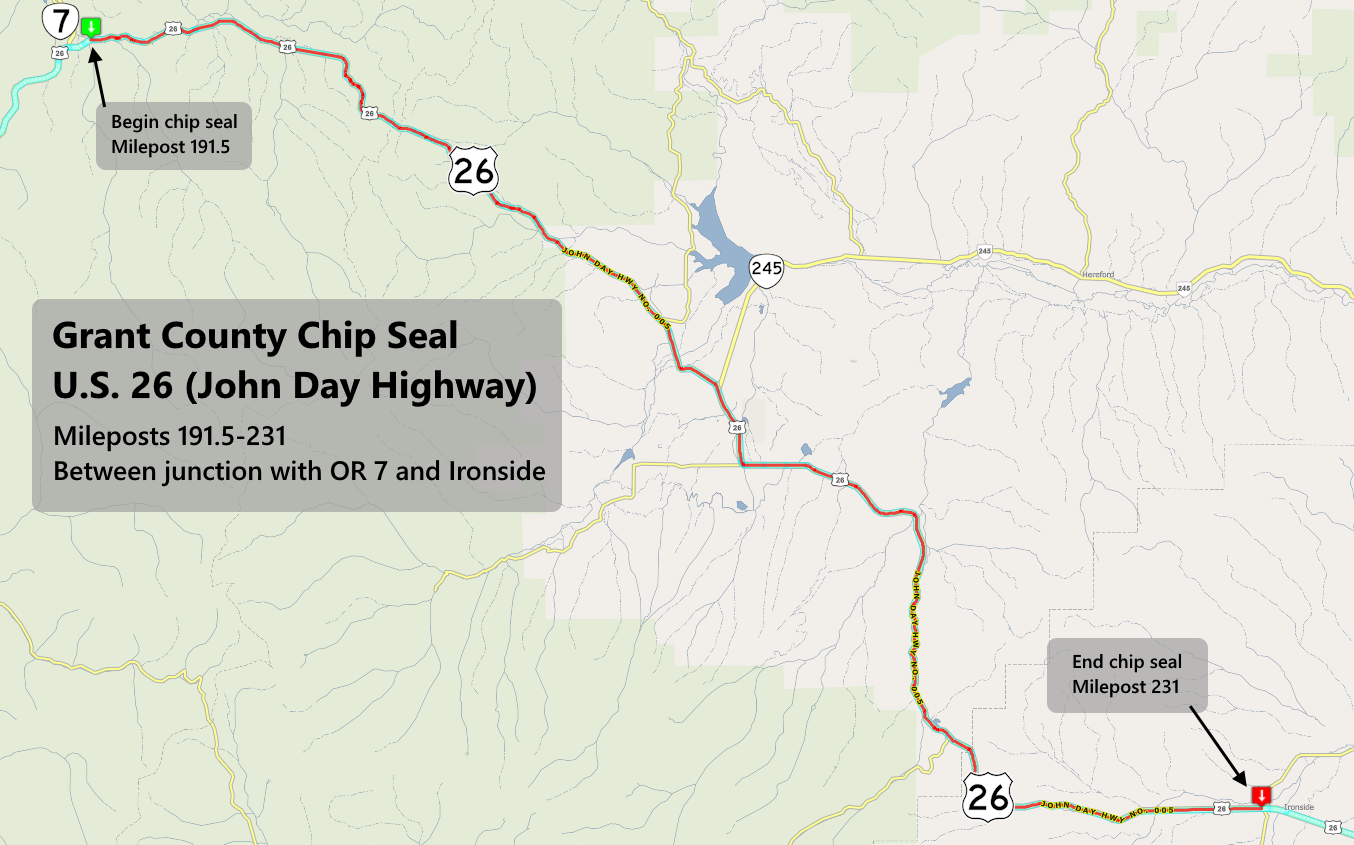Senate District 29 candidate, former Morrow County commissioner faces ethics investigation
Published 7:00 am Sunday, January 14, 2024
SALEM — Jim Doherty, former Morrow County Commissioner and current candidate for Oregon Senate District 29, is under investigation for possible ethics violations.
The Oregon Government Ethics Commission on Jan. 5 voted 9-0 to open an investigation to determine if Doherty, while he was a Morrow County commissioner in late 2020, failed to declare conflicts of interest under Oregon Revised Statute 244.120 and if he engaged in a prohibited use of his office under ORS 244.040.
Doherty on Jan. 10 said he agreed he could have been more transparent about disclosure, but he disagreed with the allegation regarding the use of his office.
Preliminary findings lead to vote
According to audio recordings of the Jan. 5 meeting, Susan Myers, the ethics commission’s compliance and education coordinator, said a preliminary review shows Doherty in December 2020 participated in four meetings where county staff and commissioners discussed grants from the Coronavirus Aid, Relief and Economic Security (CARES) Act, which provided businesses with grants during the pandemic.
Discussions covered what the county’s application would look like and what business to fund.
“His son’s company is an outfitters, and he and his wife own a cattle company,” Myers said. “So they were deliberating what amount of money to give to each category of business. And his businesses were included in some of those categories.”
Doherty declared no conflicts of interest at the first two meetings, she said, abstained from the vote in the third and abstained in the last meeting but also “made a more complete conflict of interest announcement.” She said Doherty in the meetings appears to have failed to satisfy state disclosure requirements and may have been involved in setting up what the criteria would be for the applicants.
“Because he and his son were applicants, any suggestions, or recommendations or proposals that he made to direct more funding toward one category of applicants versus another could give rise to a violation to a prohibited use of office,” Myers said.
Doherty gives his side
Ethics commission members had no questions for Myers during the Jan. 5 meeting, and Shawn Lindsay, commission vice chair, then asked Doherty, who participated by phone, if he wanted to comment.
Doherty told the commission that as the county board worked and voted on the CARES Act grants, he “had no thoughts or knowledge” his businesses would qualify.
“In fact, I think it’s important for the commission and the record to note that it was probably the most overt disagreement that I’ve had with my spouse or business partner,” Doherty told the commission. “Once the criteria was set up and she said, ‘You know, look, our business qualifies.’ “
He said he did not vote on the grants, but he faltered in not declaring why he did not vote. He said he “sidelined” himself on all decisions relative to all of the grant applications.
“But you can’t just sideline yourself, right?” Doherty said. “You got to declare why you’re sidelining yourself.”
He also said he never thought he held “sway one way or another” on the grants.
“Ultimately all the decisions, all the ranking or criteria or payout or what business got what was solely decided by the other two commissioners,” Doherty said.
Moving ‘beyond the preliminary review’
Lindsay said he appreciated Doherty’s transparency and intent to do what’s right. Commissioner David Fiskum agreed with Lindsay and also said he appreciated Doherty’s “clarity, honesty and transparency. … as he tried to do the right thing.”
Even so, Fiskum made a motion to the commission to find there is a substantial objective basis for believing that Doherty might have violated the state ethics laws and the commission should investigate.
Lindsay in response said he has sympathy for Doherty, calling the coronavirus uncharted waters, but more importantly, on the issue of clarity about the grants. He said he could see Doherty’s voting and disclosure progress as clarity about the grants progressed.
“And I obviously see an intent to do what is right here,” Lindsay said. “So, I’ll personality be supporting the motion, but I hope that it’s more of a letter of instruction and help him be compliant in future things.”
With no further comments, the commission voted 9-0 to investigate Doherty.
“Mr. Doherty, what we’ve decided is not a violation,” Lindsay said in response. “We’ve decided simply to move beyond the preliminary review to investigate a little bit further and to work with you to iron some things out and hopefully get to mutual agreement on resolving this fully.”
Doherty said he appreciated Lindsay’s comments and thanked the commission for the opportunity to speak.
Doherty afterward said he understands the commission’s vote, related to his failure to explain why he didn’t participate in making decisions about the CARES grants, and he expects to receive a letter of education to do better in the future.
“I’m pretty sure that will be the outcome of that one,” he said.
But he took issue with the commission voting to investigate if he engaged in a prohibited use of public office. He said he told Myers “I’ll fight that one to my last breath.”
Commission dismisses case against former John Day councilor
The ethics commission at its meeting also voted on whether Shannon Adair used her position as a John Day city councilor to obtain a 2.8-acre lot in the city’s Innovation Gateway.
The commission has been investigating Adair or more than a year following a complaint from community member Bob Pereira, who accused Adair of using her position as a city councilor to enrich herself and failing to declare a conflict of interest when the council was discussing the sale of the property to her.
Adair purchased the lot for $122,840 with the intention of forming a new venture, 1188 Destinations, that would feature a distillery, restaurant, cabins for overnight lodging and a small outdoor pavilion that could host live music.
Question of enriching herself
The ethics commission concluded that Adair did not use her position as a councilor to enrich herself.
The concern for the ethics commission was whether Adair had access to information the general public did not, thus putting her at an advantage when trying to buy the Innovation Gateway property.
The commission determined Adair did not have access to information that made it easier for her to purchase the land than it would have been for any other member of the community.
The conversation then shifted to whether or not Adair had declared a conflict of interest in the case.
Motion fails
After some discussion, a motion was made to proceed with an ethics investigation on the basis of Adair not declaring a conflict of interest in relation to the land sale. The motion failed on a 5-4 vote, leading to a dismissal of the case and clearing Adair of any ethics concerns associated with the land sale.
“Relieved” is the word Adair said came to mind for how she felt following the ethics commission’s ruling.
“John Day is my home, so to have people talking about me being not ethical was really hard for me because I made every effort to not do that,” she said.
“It just feels real good that I can stand and say that even the ethics commission found that I handled it correctly,” she said.
Adair said she was always confident she had done her best to do the right thing in navigating her role on the city council while trying to finalize the land sale.
“Being a public official is really challenging, and I’d never say that I was 100% confident that I did things 100% correctly ever because there is just too much, it’s too complicated and we’re doing the best that we can,” she said. “But I was confident that I’d done my best to make sure I’d done it right.”
What might be next
With the ethics commission investigation over, some observers have wondered about Adair’s political future and whether she might throw her hat into the ring for the vacant mayor slot should Heather Rookstool be recalled as John Day’s mayor. Adair said she isn’t sure what her next steps will be but hopes that the mayor is elected rather than appointed should the recall of Rookstool be successful.
“Right now I am so worried about what is happening with John Day that I’d like to see the recall be successful and then we’ll move forward from there,” she said. “I would like to see more people involved, and I would really like to see the council have the next mayor elected. Whether I’m one of those people — I don’t know.”
Adair stressed that she’d like to see the community have a say in who the next mayor of John Day is should the recall succeed. “If the council appoints the next mayor if the recall is successful, then we have four appointees on a seven-member council and I don’t think that’s right,” she said.
The John Day City Charter notes that the mayor is a voting member of the city council and specifies that a vacancy on the council is to be filled by appointment of the remaining council members.






